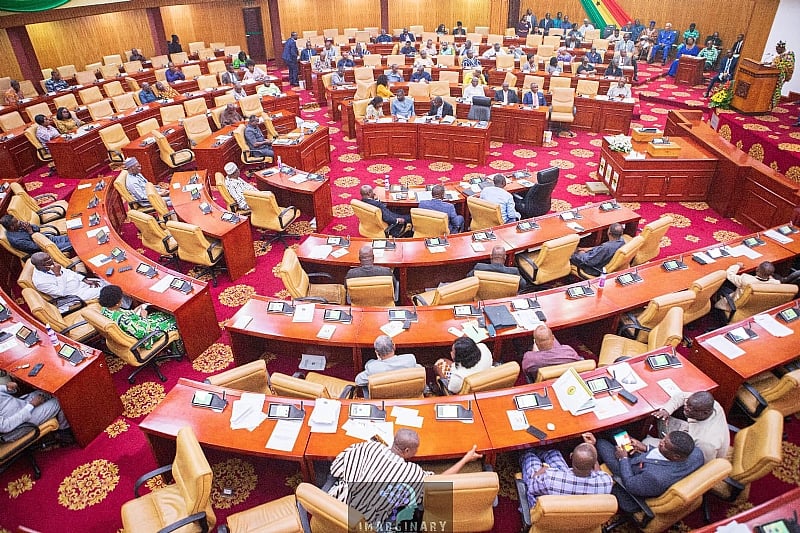The Ghanaian Parliament has approved a GH¢68.13 billion mini-budget for the first quarter of 2025, paving the way for uninterrupted government operations during the transition period leading up to the new administration’s full budget presentation. This crucial step ensures the continuity of essential services and prevents fiscal disruptions as the country awaits the inauguration of President-elect John Dramani Mahama. The mini-budget, formally known as Expenditure in Advance of Appropriation, covers government spending from January to March 2025 and addresses critical funding needs while promoting economic stability. Its passage reflects Parliament’s commitment to averting a government shutdown and facilitating a smooth handover of power.
The approval process followed established constitutional procedures. Finance Minister Dr. Mohammed Amin Adam presented the budget proposal to Parliament, which then referred it to the joint Budget and Finance Committees for detailed review. This scrutiny, mandated by Article 180 of the 1992 Constitution and Parliament’s Standing Orders, ensured a thorough examination of the budget’s provisions before its presentation to the full House for debate and final approval. The committees’ deliberations allowed for a comprehensive assessment of the budget’s alignment with national priorities and fiscal sustainability.
The mini-budget projects total revenue and grants at GH¢42.54 billion, equivalent to 3.5% of GDP. This revenue projection comprises GH¢40.67 billion in domestic revenue, GH¢1.87 billion in tax revenue, GH¢68.65 million in grants, and GH¢1.04 billion from social security contributions and other sources. The expenditure allocations prioritize critical government functions, including a substantial GH¢2.37 billion designated for tax refunds. Furthermore, the budget allocates resources towards essential sectors such as healthcare, education, and infrastructure development, reflecting the government’s commitment to these vital areas.
The parliamentary debate preceding the budget’s approval highlighted the divergent views of the Majority and Minority caucuses. Discussions centered on spending priorities within sectors like healthcare, education, and infrastructure, as well as the efficacy of the government’s revenue mobilization strategies. The Minority Caucus had earlier accused the Finance Minister of deliberately delaying the budget presentation, a claim dismissed by the Majority Caucus, who emphasized the budget’s crucial role in maintaining government operations during the transition. Despite these differing perspectives, the final approval demonstrates a shared commitment to ensuring fiscal stability and a seamless transfer of power.
The mini-budget serves as a bridge to the incoming administration’s comprehensive budget plan for the remainder of the year. It ensures that essential government functions continue uninterrupted, preventing disruptions that could negatively impact service delivery and economic stability. This interim budget allows the incoming administration time to formulate its own detailed budget, tailored to its specific policy priorities and economic outlook. The mini-budget’s focus on critical areas like tax refunds, healthcare, education, and infrastructure development lays the groundwork for the incoming administration to build upon existing programs and implement its own vision for the country.
This approved mini-budget represents a significant milestone in Ghana’s political transition. It underscores the commitment of both outgoing and incoming administrations to maintain fiscal responsibility and ensure a smooth handover of power. By prioritizing essential services and addressing critical fiscal needs, the mini-budget creates a stable platform for the President-elect to assume office and begin implementing his agenda. The robust parliamentary debate that preceded the approval reflects the democratic process at work, ensuring transparency and accountability in government spending. The budget’s passage ultimately paves the way for continued economic stability and a seamless transition of power in Ghana.


